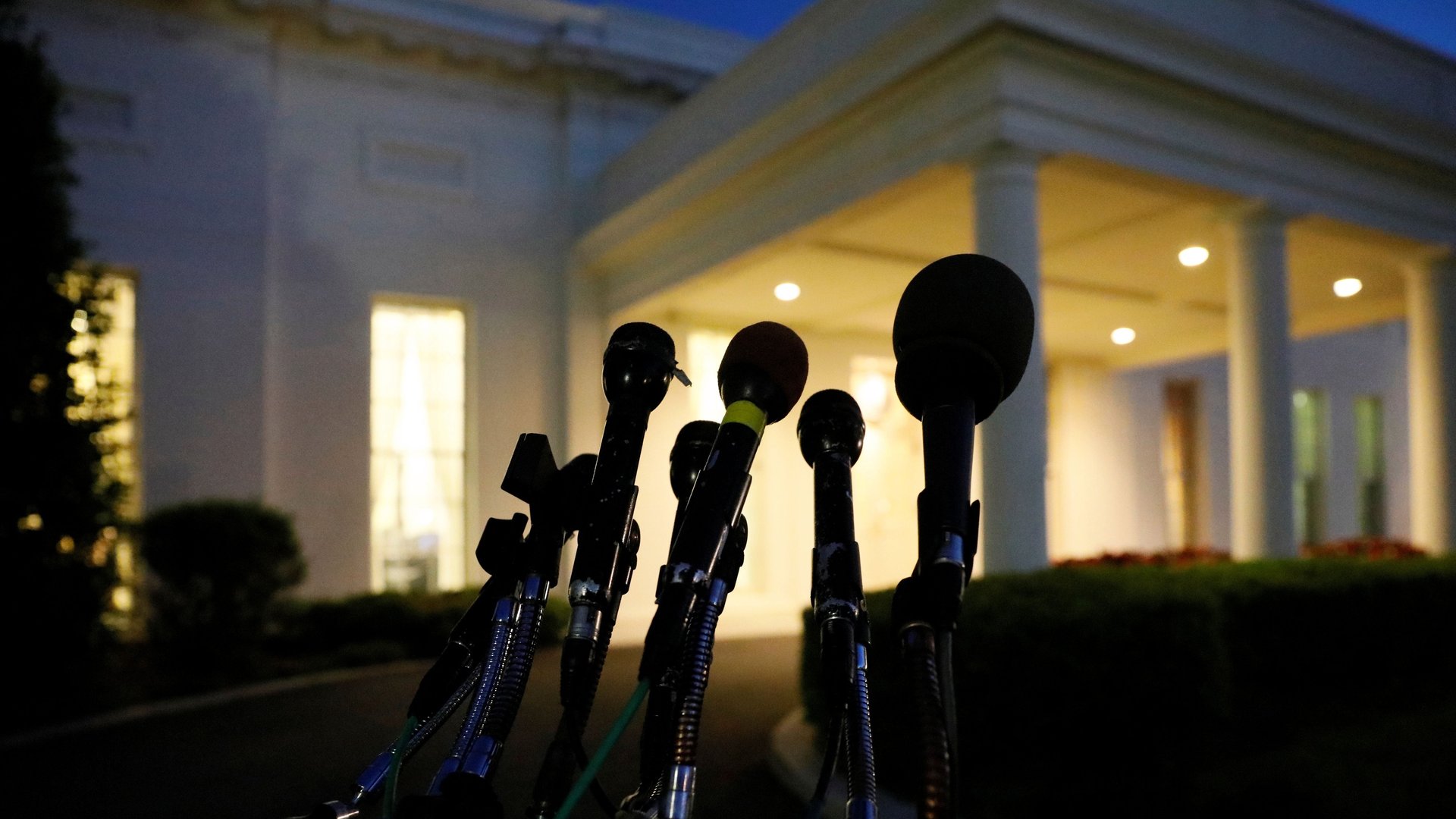There is one kind of Trump aide most likely to have written the anonymous NYT op-ed
The US director of national intelligence says he didn’t write it. Ditto say the heads of the Department of Homeland Security and the Department of Housing, the secretary of state, the secretary of defense, the commerce secretary, the energy secretary, or the vice president. In a rare statement, even the first lady has disavowed it.


The US director of national intelligence says he didn’t write it. Ditto say the heads of the Department of Homeland Security and the Department of Housing, the secretary of state, the secretary of defense, the commerce secretary, the energy secretary, or the vice president. In a rare statement, even the first lady has disavowed it.
Top Trump administration officials are scurrying to distance themselves from the anonymous op-ed in the New York Times that calls the president amoral, and claims to be the voice of one of many appointees thwarting his objectives while eagerly anticipating his departure from office.
Is the parade of deniers telling the truth?
Only they know for sure, and American political history suggests they may not be.
What’s certain: There are hundreds of White House and agency employees who could qualify as the “senior official in the Trump administration” who penned the damning essay—and dozens who are deeply upset with how things are going.
Times op-ed editor James Dao says the author contacted the editorial page through a known intermediary, that the paper was “100% confident” that the writer is who they say they are, and that in calling them a senior official, “we follow the definition that has been used by our newsroom in the past.” That’s a designation that the Trump White House has asked reporters to use for officials ranging from trade lawyers to press spokespeople to midterm campaign strategists in background briefings.
The timing is not a coincidence, many in DC believe. Coming out just days after the early excerpts from veteran journalist Bob Woodward’s tome on White House, the essay is designed to “amplify the message in this book,” said Adam Garfinkle, a former George W. Bush administration speechwriter.
Who might be moved to write?
There are, broadly, four categories of appointees working for Donald Trump:
- Current and former members of the military As early as June of 2017, Trump’s foreign policy was understood to be outsourced to top military officials, who were discussing what they’d do if Trump gave them an order they could not carry out. Chief of staff and retired general John Kelly is once again on the outs. But directly undermining the commander in chief with an anonymous missive is incredibly unlikely move for an active military officer, current and former officials told Quartz. The global perception of chaos at the highest levels of the administration would erode morale among the US’s more than one million armed-services personnel.
- Law and intel officials Trump has railed against the Department of Justice and the intelligence community since he took office. Still, most federal employees—and particularly those who work in law enforcement—generally adhere to the principle of “Obey now, grieve later,” which states that they should “follow an instruction, direction, or order of a supervisor in his or her chain of command” even if they believe it to be wrong. Anything less can lead to being fired for insubordination. That makes them unlikely authors. “If you are in the heat of the moment you don’t jeopardize the whole team and their safety then. You raise the problem after the fact,” said one national security veteran who has served in several administrations. “I can’t imagine someone who has a career focus on national security undermining the president in this way.”
- Civil servants and diplomats Under Trump, the federal government has seen an exodus of long-serving employees, some of whom complain that he created a toxic work environment at the country’s biggest employer. Those who remain are dismayed by the administration’s disorganization and partisanship—but historically would be likely to openly quit, or ask to be transferred to a distant job agency, rather than an anonymous kick in the shins.
- Appointees new to government The Trump transition team leaned heavily on campaign officials who have never served in the military, law enforcement, or the federal civil service—many of them incredibly wealthy. This is where some former and current government officials suggest the search should focus. The letter seems to have been penned by someone who doesn’t seem to understand the selflessness required by belief in the concept of “public service,” longtime government employees have said. After all, the author is apparently someone who is happy to call themself an “unsung hero.”
What could be the ultimate motive?
The Woodward book “was bad, but he does a book every four years like this,” said Edward Goldberg, a professor at New York University’s Center For Global Affairs, and author of The Joint Ventured Nation: Why America Needs A New Foreign Policy. They’re often considered insidery political gossip, he said, and the op-ed is ultimately more damaging.
The negative impression that the op-ed leaves about the president seems designed to create one outcome, Stephen Biddle, a defense policy expert at the Council of Foreign Relations and a former advisor to the US military in Iraq and Afghanistan, tells Quartz: “To ensure that Democrats win in the fall.”
Still, Biddle added, there may not be any broader motive. It could be “just a cri de coeur,” he said, a scream of “I can’t take it any more” to the world.